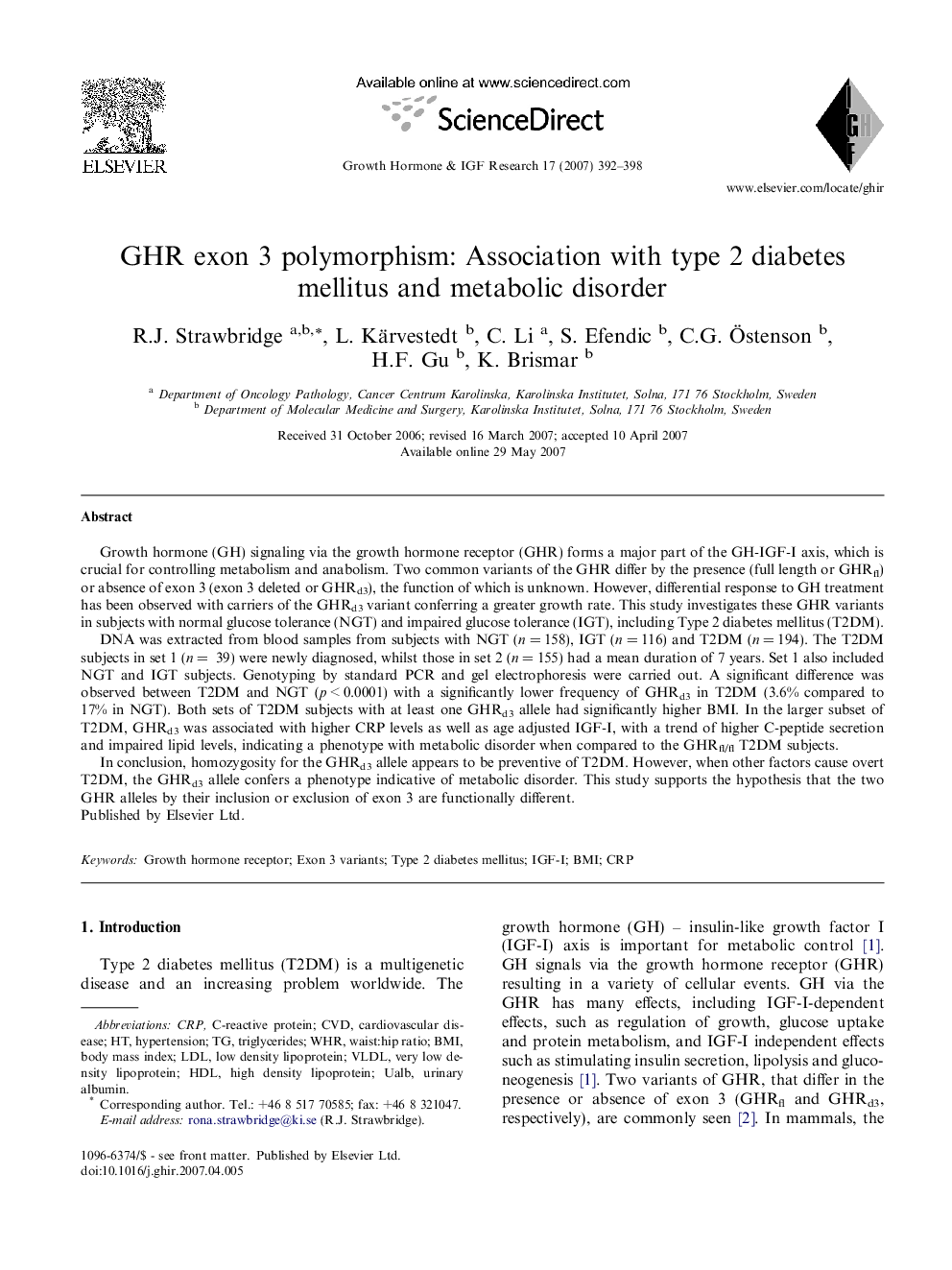| کد مقاله | کد نشریه | سال انتشار | مقاله انگلیسی | نسخه تمام متن |
|---|---|---|---|---|
| 2803253 | 1156727 | 2007 | 7 صفحه PDF | دانلود رایگان |

Growth hormone (GH) signaling via the growth hormone receptor (GHR) forms a major part of the GH-IGF-I axis, which is crucial for controlling metabolism and anabolism. Two common variants of the GHR differ by the presence (full length or GHRfl) or absence of exon 3 (exon 3 deleted or GHRd3), the function of which is unknown. However, differential response to GH treatment has been observed with carriers of the GHRd3 variant conferring a greater growth rate. This study investigates these GHR variants in subjects with normal glucose tolerance (NGT) and impaired glucose tolerance (IGT), including Type 2 diabetes mellitus (T2DM).DNA was extracted from blood samples from subjects with NGT (n = 158), IGT (n = 116) and T2DM (n = 194). The T2DM subjects in set 1 (n = 39) were newly diagnosed, whilst those in set 2 (n = 155) had a mean duration of 7 years. Set 1 also included NGT and IGT subjects. Genotyping by standard PCR and gel electrophoresis were carried out. A significant difference was observed between T2DM and NGT (p < 0.0001) with a significantly lower frequency of GHRd3 in T2DM (3.6% compared to 17% in NGT). Both sets of T2DM subjects with at least one GHRd3 allele had significantly higher BMI. In the larger subset of T2DM, GHRd3 was associated with higher CRP levels as well as age adjusted IGF-I, with a trend of higher C-peptide secretion and impaired lipid levels, indicating a phenotype with metabolic disorder when compared to the GHRfl/fl T2DM subjects.In conclusion, homozygosity for the GHRd3 allele appears to be preventive of T2DM. However, when other factors cause overt T2DM, the GHRd3 allele confers a phenotype indicative of metabolic disorder. This study supports the hypothesis that the two GHR alleles by their inclusion or exclusion of exon 3 are functionally different.
Journal: Growth Hormone & IGF Research - Volume 17, Issue 5, October 2007, Pages 392–398